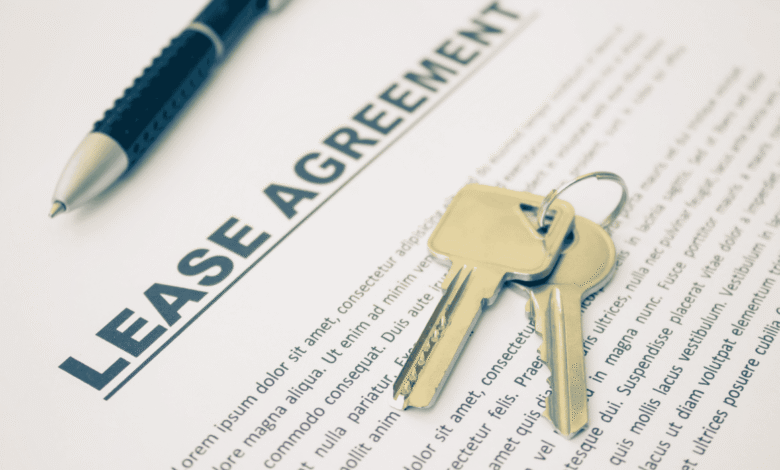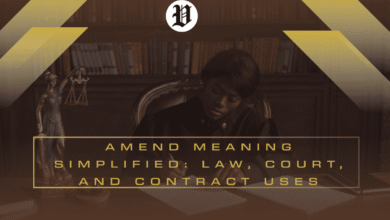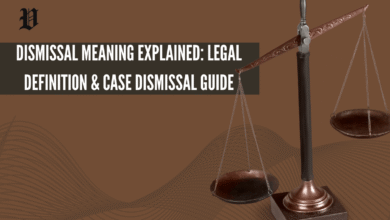Breaking a Lease Due to Domestic Violence or Harassment: A Legal Guide

Hey, if you’re here reading this, you’re probably going through something really tough right now—like dealing with domestic violence, harassment from another tenant, or just a straight-up hostile living situation that makes you feel unsafe. I get it; it’s scary and overwhelming, but the good news is you’re not stuck. There are ways to protect yourself and get out without the whole world crashing down on you. Breaking a lease due to domestic violence isn’t about bailing—it’s about putting your safety first and reclaiming some control.
In this article, I’ll walk you through your options step by step, in a way that’s straightforward and supportive. We’ll talk about your rights, how to handle things practically, and even stuff like writing a written notice to terminate lease or figuring out how to get off a lease with someone who’s making things worse. Laws change from state to state, so I’ll highlight places like California, Florida, Texas, and Nevada (with a nod to Las Vegas specifics), but always check with someone local, like legal aid, to make sure it fits your exact spot.
Understanding Your Rights as a Tenant Facing Domestic Violence or Harassment
Look, as a renter, you deserve a place where you feel secure, and thankfully, a lot of laws back that up. Abuse or harassment shouldn’t keep you locked into a lease that’s putting you at risk. Take breaking a lease due to domestic violence, for example—the federal Violence Against Women Act (VAWA) sets some ground rules, especially for federally funded housing, to stop landlords from punishing victims. But each state adds its own layers. In California, under the CA domestic violence leasing qualifications, if you’ve got proof like a restraining order or a police report, you can end things early without penalties.
Florida has statutes that shield you from eviction or extra fees if you’re a victim. Over in Texas, the Family Code lets you walk away if there’s threats or abuse, as long as you give written notice. This stuff applies to tenant harassment of other tenants or harassment by another tenant too—if it’s creating a hostile environment, you might have solid grounds to leave. The big thing? Keep records of everything, from police calls to emails or notes from witnesses, to prove your safety’s on the line.
People also see: Civil Cases Explained: Lawsuits, Examples & Modern Trends
How to Legally Break a Lease Due to Domestic Violence
When domestic violence pushes you to the point of needing out, most states have your back, letting you break the lease without forking over rent for the rest of the term. First, pull together your evidence—a police report, restraining order, or even a note from a counselor or doctor. Then, put it in writing to your landlord; that’s key for something like early termination of lease California.
Wondering, can you break a lease in Texas? Absolutely, if abuse is involved and you follow the notice rules. Typically, it goes like this: document what happened, send that written notice (usually around 30 days), and maybe cover rent up to your move-out day. Down below, I’ve got a sample letter to terminate lease due to domestic violence you can tweak to fit.
For a snapshot of how it works in some states:
| State | Legal Basis for Breaking Lease | Notice Requirements | Special Protections |
|---|---|---|---|
| California | CA Domestic Violence Leasing Qualifications | Must provide documentation (restraining order, police report) | Victim may terminate lease without penalty or notice |
| Florida | FL Statutes on Domestic Violence | Provide written notice and evidence | Protection against eviction or lease penalty |
| Texas | Texas Family Code 71.005 | Written notice to landlord | Right to terminate lease if threatened or abused |
| Nevada (Las Vegas) | Nevada Revised Statutes (NRS) 118A.310 | Must provide written notice with proof (restraining order, police report) | Protection from retaliation or eviction; lease termination allowed without penalty |
| New York | NY Domestic Violence Laws | Must notify landlord within 30 days | Protection from retaliation or eviction |
What to Do If You’re Facing Tenant Harassment
It’s exhausting when harassment by another tenant turns your home into a nightmare, and yeah, that can be enough for breaking lease due to hostile environment. If it’s tenant harassing other tenants California or anywhere, start by telling your landlord—they’re supposed to ensure everyone can live in peace. If they brush it off, that’s on them, and it might give you the green light to leave. Here’s what to do: jot down every incident with details, call the cops if it escalates, write a tenant harassment of other tenants letter to your landlord pushing for action, and if nothing changes, go for early termination.
In Florida, things like witness accounts can back up how to legally break a lease in Florida. Nevada’s got strong rules too, especially in Las Vegas, where you can break if harassment threatens your well-being. And roommate harassment laws? They often overlap—if it’s bad, you could treat it like domestic violence or push to get them out.
| State | Legal Grounds for Lease Termination | Required Documentation | Protections and Rights |
|---|---|---|---|
| California | Tenant Harassment Laws | Evidence of harassment, police reports | Right to terminate lease if harassment occurs |
| Florida | Florida Tenant Protection Laws | Witness statements, written complaints | Protection against retaliation for lease termination |
| Nevada (Las Vegas) | Nevada Landlord-Tenant Law | Police reports, written complaints | Tenant has right to terminate lease due to harassment or unsafe living conditions |
| Georgia | Georgia Residential Landlord-Tenant Act | Police reports, or formal complaints | Tenant can break lease if harassment persists |
| Texas | Texas Property Code | Documentation of harassment | Victims of harassment can seek early termination |
How to Handle a Hostile Environment
Living in a hostile environment—maybe endless noise, threats from harassment by another tenant, or other unsafe vibes—doesn’t mean you’re trapped; it can actually let you break your lease legally. In Washington state, legal reasons to break a lease in Washington state cover stuff like proven harassment. Virginia’s got similar legal reasons to break a lease in Virginia. Kick things off with a tenant cancel lease letter to your landlord, laying out the problems and asking them to fix it. Throw in your evidence and demand changes.
If they don’t step up, you could claim it’s like being evicted by the conditions. When writing that letter, keep it factual: explain what’s happening, cite relevant laws (think how to break an apartment lease without penalty), and pick your exit date.
Breaking a Lease in Various States
Every state’s got its own spin on this, so let’s dive in a bit. For breaking a lease in PA, you might need to show the place is basically unlivable due to harassment, plus written notice. In Georgia, how to get out of a lease in Georgia for domestic violence usually means 30 days’ heads-up. Missouri? How to break a lease in Missouri often comes down to notice for abuse cases. South Carolina deals with landlord harassment South Carolina by letting you break for unsafe spots.
Nevada, including breaking a lease in Nevada, requires proof and notice for DV. Ohio’s breaking a lease in Ohio allows it if harassment messes with your right to quiet. Illinois: how to get out of a lease in Illinois needs evidence for harassment. Florida specifics—like how to break a lease in Florida or how to get out of lease in Florida—typically involve 7-30 days notice, and what happens if you break your lease in Florida could mean fees unless it’s justified. Tennessee prohibits retaliation for landlord harassment Tennessee. For SC, how to break a lease in SC works for DV. Can you break a lease in California? Sure, for abuse reasons. And how to break a lease legally in Texas? Notice for safety threats does it.
| State | Notice Required to Break Lease | Reason for Breaking Lease | Potential Penalties or Protections |
|---|---|---|---|
| California | 30-day notice | Domestic violence, tenant harassment | Tenant can leave without penalty if abusive conduct is proven |
| Texas | 60-day notice | Unsafe conditions, hostile environment | Right to break lease if safety is compromised |
| Nevada (Las Vegas) | Written notice (30 days) | Domestic violence, tenant harassment | Tenant can break lease immediately if facing unsafe conditions or harassment |
| Georgia | Written notice | Lease violations, harassment | No penalty if harassment or unsafe conditions exist |
| South Carolina | 30-day written notice | Domestic violence, unsafe living environment | Tenant may break lease without penalty if unsafe living conditions |
Steps to Take When You Need to Get Out of a Lease with Someone
Dealing with a roommate who’s harassing you? Getting how to get someone off your lease or how to remove someone from a lease sorted is crucial. Can one person break a two-person lease? Yeah, usually, but the other might still be on the hook unless everyone’s released. Begin by telling the landlord, backed by proof. No agreement? Head to court, maybe for an eviction if they’re breaking rules. Roommate harassment laws mean you document and report; if it’s extreme, frame it as DV.
| Action | Required Documents | Legal Rights |
|---|---|---|
| Notify landlord of removal | Written request, evidence of harassment | Right to request removal if safety is compromised |
| Reach agreement with roommate | Signed agreement or legal documents | Both parties can agree to remove one from lease |
| File formal request to remove | Legal notice or eviction order | Tenant can seek legal action to remove someone without consent |
Sample Letters for Lease Termination
Need a starting point? Try this for a tenant harassment of other tenants letter or DV scenario:[Your Name][Your Address][Date]
[Landlord’s Name][Landlord’s Address]Subject: Written Notice to Terminate Lease Due to Domestic Violence
Dear [Landlord],
Under [State Law, like CA Civil Code §1946.7], I’m ending my lease at [Address] as of [Date, say 14 days out]. I’m a victim of domestic violence, and I’ve attached proof like a [police report/restraining order]. No penalties, please, and I’d like my deposit back.
Sincerely,
[Your Name]
For harassment, switch to “due to hostile environment from another tenant.”
Or for unsafe stuff: “Tenant cancel lease letter due to safety concerns.”
Legal Help for Breaking a Lease
When it gets messy—say, persistent landlord harassment Tennessee or South Carolina issues—talk to a lawyer. Groups like Legal Aid Society offer free help. Whether it’s breaking a lease in PA or sorting Illinois details, pros can guide you through.
People also see: Printable Legal Guardianship Forms: A Comprehensive Guide
FAQs
Can I break my lease early if I’m a victim of domestic violence?
Totally, in most places—with notice and evidence, no penalties.
What should I do if I’m facing harassment from another tenant?
Write it all down, tell the landlord and police, and push for termination if it doesn’t stop.
How can I legally remove someone from my lease?
Alert the landlord with proof; aim for agreement or go legal.
Can I terminate my lease early if I feel unsafe in my apartment?
If it’s from harassment or abuse, yes—just give notice.
How do I break a lease in California due to tenant harassment?
Show it violates quiet enjoyment; 30 days notice often works.
What rights do I have if my landlord is harassing me?
Laws against retaliation let you terminate if it’s bad.
How can I get out of a lease if I’m facing a hostile environment in my apartment?
Prove it’s unlivable and send written notice.
What are the steps to take when breaking a lease due to domestic violence in Florida?
Collect proof, send notice, and leave penalty-free.
How can I break a lease in Missouri if there is harassment or unsafe living conditions?
For DV, notice plus a statement; for harassment, if the landlord ignores it.
What is the best way to terminate a lease due to safety concerns or harassment?
Document heavily, write a formal notice, and get legal backup.
In the end
Bottom line, you’ve got real rights to break a lease over domestic violence, tenant harassment, or hostile setups. Move fast, keep notes on everything, and reach out for expert advice—your well-being matters most.





3 Comments